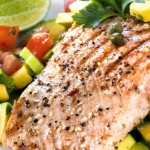How Diet Can Affect Your Performance on the Pitch
It doesn’t how much natural ability you have, or the effort you put into your training sessions between matches; if you don’t eat properly, you’ll never reach your full playing potential.
As a footballer, your diet is just as important as your touch, passing or shooting abilities. Contrary to popular belief, there is no big secret when it comes to a healthy diet for people who play football regularly. While the basic premise involves eating a healthy, well-balanced diet, there are some subtle changes you can make to your routine that should fuel your body for the heat of competitive action.
1. Remember: what you eat today could affect how you perform in seven days time
Too many players make the mistake of believing that gorging on carb-rich foods the day before a big match will keep their energy levels up throughout 90 minutes. In actual fact, you should be loading up on carbohydrates several days before a match.
According to nutritionist to the stars Matt Lovell, it’s best to run down your body’s store of carbohydrates during the first two days of the week, and then start to gradually increase your intake of brown breads, brown pasta, brown rice and potatoes as match day approaches.
Starving your body of carbohydrates forces your muscles to increase their carb-absorption capabilities. So, when you’re drastically increasing your carb intake the day before a match, your muscles will store more glycogen – giving you the energy you need to compete hard for the full 90 minutes.
2. Eat lots of soup two to three days before a match
Staying hydrated during training sessions is relatively easy, as it’s usually possible to take on fluids every few minutes – usually after the completion of every drill. However, this may not be possible during a match, so you will need to ensure that you’re completely hydrated beforehand. Instead of eating vegetables and protein four or five times a day, consider buying a blender and making nutritious soups out of some of your meals. Think about cooking with spices such as ginger, turmeric and chilli, as they thin the blood slightly which promotes faster delivery of oxygen to your main organs. This can greatly enhance your stamina during matches.
3. The most important meal you will eat is dinner the day before a match
That last thing you want to be doing just hours before kick-off is stuffing your face with bread and pasta, as this could have the short-term effect of making you lethargic. However, by taking on carbs the night before a match, you can afford to eat lightly on match day and still have the energy you need to perform at your best. But while carbohydrates are crucial, it’s equally as important not to go overboard on them. You should still aim to eat a well-balanced meal containing protein and fresh vegetables. Chicken breast and fish are ideal, and leafy vegetables such as spinach and broccoli are packed with the vitamins and antioxidants you’ll need to get through a gruelling 90 minutes.
4. The hours before kick off
A lot of amateur players make the mistake of getting up too early in order to ensure a healthy breakfast is eaten on match day. It is not unusual to toss and turn with nerves the night before a match, so forcing yourself up early and depriving yourself of sleep is the last thing you should be doing. As long as you have eaten well during the week, and had a nutritious, carb-rich dinner the night before, you should never sacrifice sleep for breakfast. When you do get up, it’s best to avoid wheat and starch-based foods, as they can cause bloating. Stick to protein-based breakfasts – porridge, kippers and omelettes are perfect meals for the morning of the big match.
With about four hours to go until kick-off, you should be thinking about eating for the last time. You should keep fat to a minimum, and focus on vegetables, protein and carb-rich foods. Some steamed fish with new potatoes and fresh vegetables is perfect. Or if you’re not feeling that hungry, a small jacket potato with tuna is ideal. Trial and error will let you know what works for you, but remember that carbohydrates are the most important type of fuel for your body this close to kick-off.
If you are feeling peckish during the hour or so before kick-off, sugar-free cereal bars, dried fruit or bananas are the perfect pre-match snacks. However, try to steer clear of sugary energy drinks, as excess sugar levels can lead to lethargy.
As long as you stick to a nutritious, well-balanced diet, increase your intake of carbohydrates towards match day and reduce your fat and sugar intake during the two or three days before kick-off, should be able to perform at the peak of your powers for a full 90 minutes.

